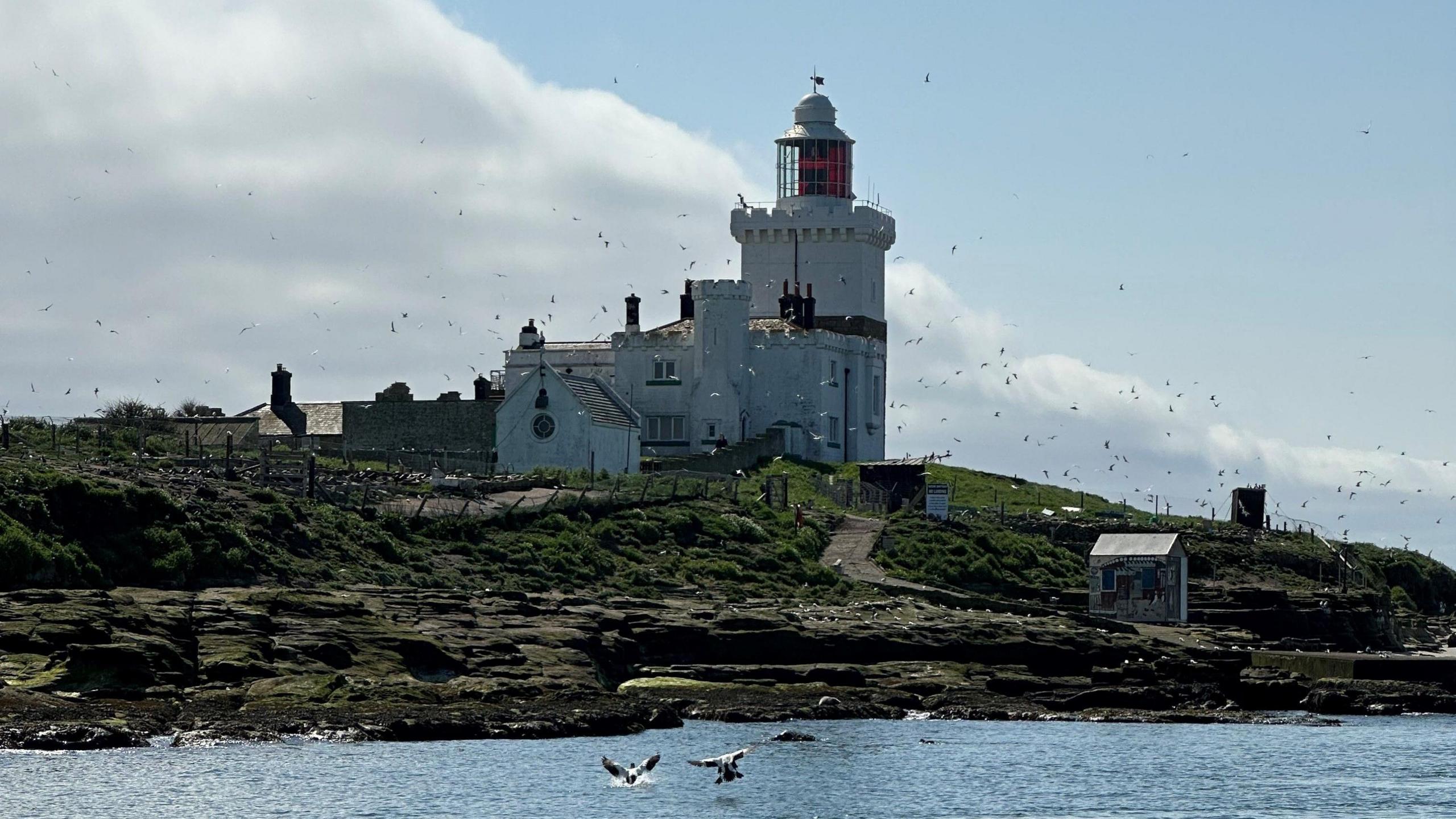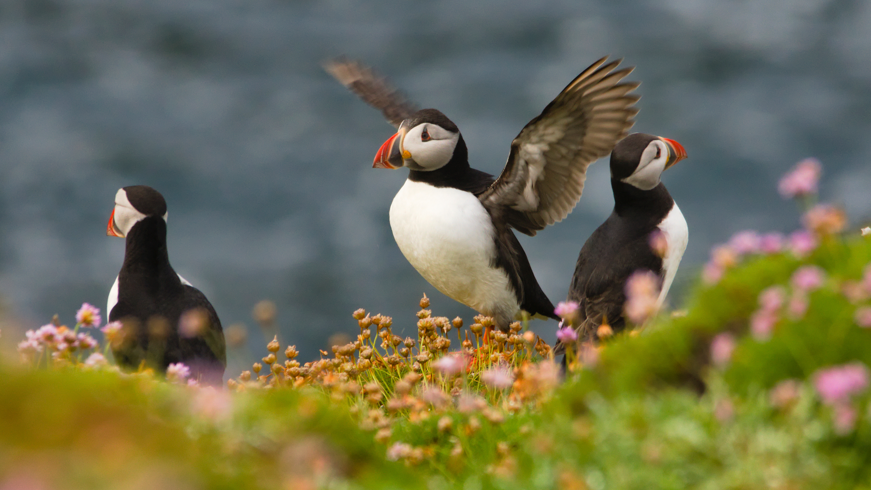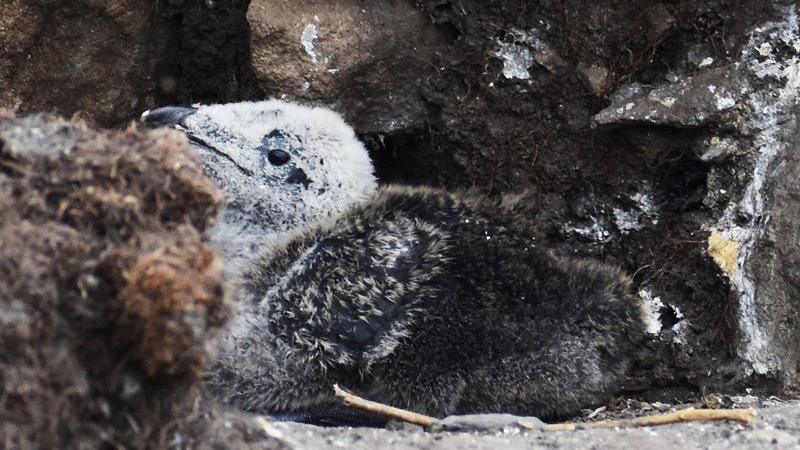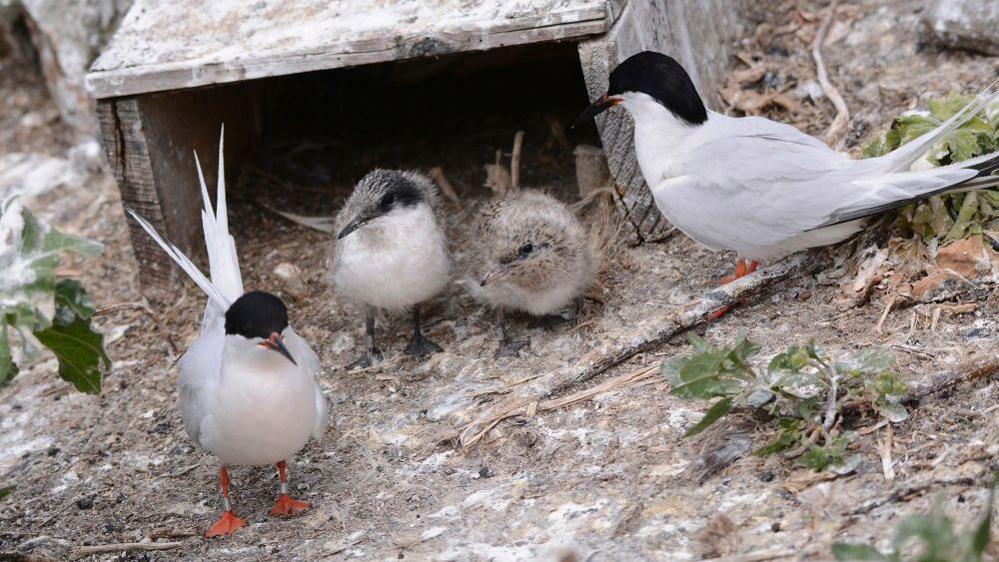Septic tank overflowing at rare bird sanctuary

The drainage system on Coquet Island cannot cope with a recent increase in people using Trinity House's facilities, the RSPB said
- Published
Sewage is being discharged on an island sanctuary for rare birds.
Coquet Island, off the coast of Northumberland, is home to 30,000 puffins as well as arctic, common and Sandwich terns.
The site is a protected nature reserve managed by the Royal Society for the Protection of Birds (RSPB) but sewage has recently been spotted leaking onto the island.
The RSPB said the septic tank had overflowed because more people were using the system than it was designed to handle while renovation work was being carried out on the island.
A spokesperson said: "Last week work began on an essential major renovation of the island's lighthouse and [saw] the arrival of additional work teams using Trinity House.
"We are seeing some small discharges from the septic tank, which is leading to some staining of the rocks that do look unsightly."
Those working on Coquet Island are using the facilities at Trinity House, a building on the island which serves as a base for RSPB wardens and houses a lighthouse.
Due to the renovation work, more people are currently based on the island than usual and Trinity House's sewage system cannot handle the number of people using its facilities.

Northumberland has a significant population of puffins
The RSPB said Northumberland Estates, which owns the island, previously identified the problem and submitted plans to install a new sewerage system and septic tank earlier this year.
However, before the work begins it must be approved by the regulator Natural England, which said it had worked with the RSPB to ensure the septic tank had not caused damaged to the environment.
"We are satisfied that there are no enforcement issues relating to impacts on special features of the designated site," a Natural England spokesperson said.
"Preliminary work has already been done to prepare for repairs to the waste-treatment system. The main works are planned for the autumn to avoid disturbing birds during their critical summer breeding season."
Follow BBC North East on X, external, Facebook, external, Nextdoor and Instagram, external.
Get in touch
Do you have a story suggestion for BBC Tyne?
Related topics
- Published3 August

- Published1 December 2024
